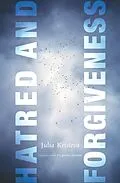Julia Kristeva refracts the impulse to hate (and our attempts to subvert, sublimate, and otherwise process it) through psychoanalysis and text, exploring worlds, women, religion, portraits, and the act of writing. Her inquiry spans themes, topics, and figures central to her writing, and her paths of discovery advance the theoretical innovations that are so characteristic of her thought.
Kristeva rearticulates and extends her analysis of language, abjection, idealization, female sexuality, love, and forgiveness. She examines the "maladies of the soul," utilizing examples from her practice and the ailments of her patients, such as fatigue, irritability, and general malaise. She sources the Bible and texts by Marguerite Duras, St. Teresa of Avila, Roland Barthes, Simone de Beauvoir, and Georgia O'Keefe. Balancing political calamity and individual pathology, she addresses internal and external catastrophes and global and personal injuries, confronting the nature of depression, obliviousness, fear, and the agony of being and nothingness.
Throughout Kristeva develops the notion that psychoanalysis is the key to serenity, with its processes of turning back, looking back, investigating the self, and refashioning psychical damage into something useful and beautiful. Constant questioning, Kristeva contends, is essential to achieving the coming to terms we all seek at the core of forgiveness.
Autorentext
Julia Kristeva is professor of linguistics at the Université de Paris VII and author of many acclaimed works and novels, including This Incredible Need to Believe, Murder in Byzantium, Strangers to Ourselves, New Maladies of the Soul, Time and Sense, Hannah Arendt, and Melanie Klein. She is the recipient of the Hannah Arendt Prize for Political Thought and the Holberg International Memorial Prize.
Jeanine Herman is the translator of volumes 1 and 2 of Julia Kristeva's The Powers and Limits of Psychoanalysis and her translation of Julien Gracq's Reading Writing was a finalist for the French-American Foundation Translation Prize.
Inhalt
Foreword, by Pierre-Louis Fort I. Worlds 1. Thinking About Liberty in Dark Times 2. Secularism: "Values" at the Limits of Life 3. Liberty, Equality, Fraternity and . . . Vulnerability II. Women 4. On Parity, Again; or, Women and the Sacred 5. From Madonnas to Nudes: A Representation of Female Beauty 6. The Passion According to Motherhood 7. The War of the Sexes Since Antiquity 8. Beauvoir, Presently 9. Fatigue in the Feminine III. Psychoanalyzing 10. The Sobbing Girl; or, On Hysterical Time 11. Healing, a Psychical Rebirth 12. From Object Love to Objectless Love 13. Desire for Law 14. Language, Sublimation, Women 15. Hatred and Forgiveness; or, From Abjection to Paranoia 16. Three Essays; or, the Victory of Polymorphous Perversion IV. Religion 17. Atheism 18. The Triple Uprooting of Israel 19. What Is Left of Our Loves? V. Portraits 20. The Inevitable Form 21. A Stranger 22. Writing as Strangeness and Jouissance VI. Writing 23. The "True-Lie," Our Unassailable Contemporary 24. Murder in Byzantium; or, Why I "ship myself on a voyage" in a Novel Notes Notes on the Origins of the Texts Bibliography Index
